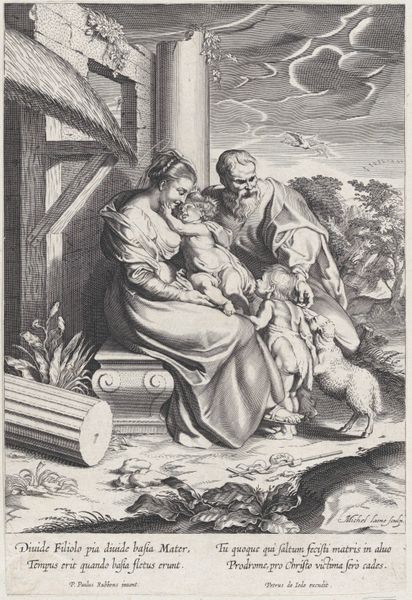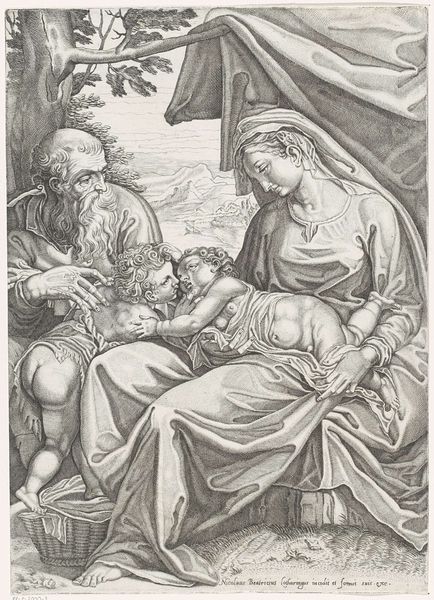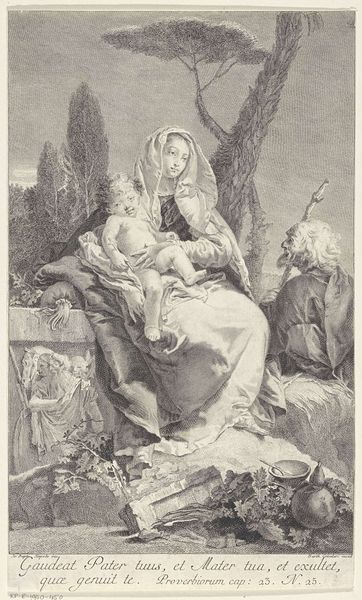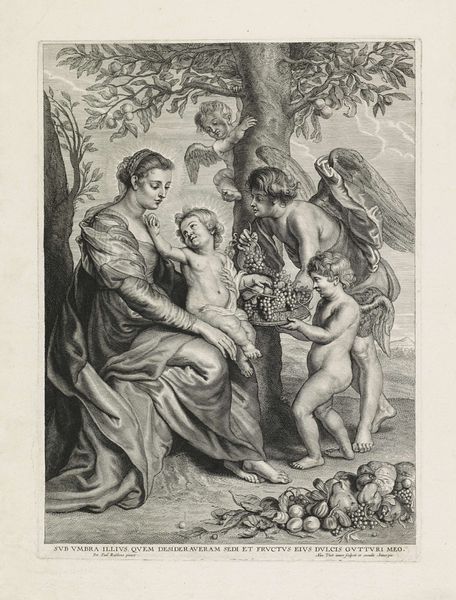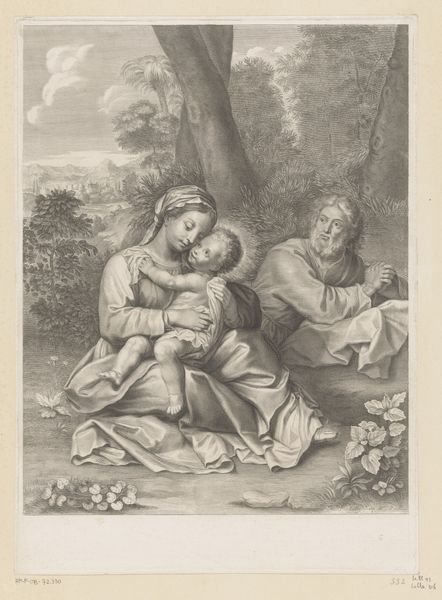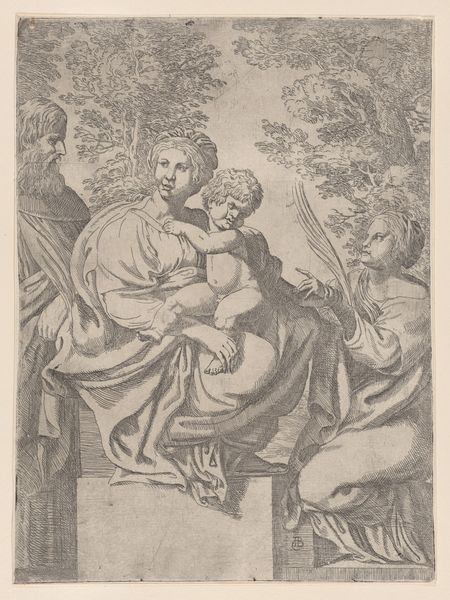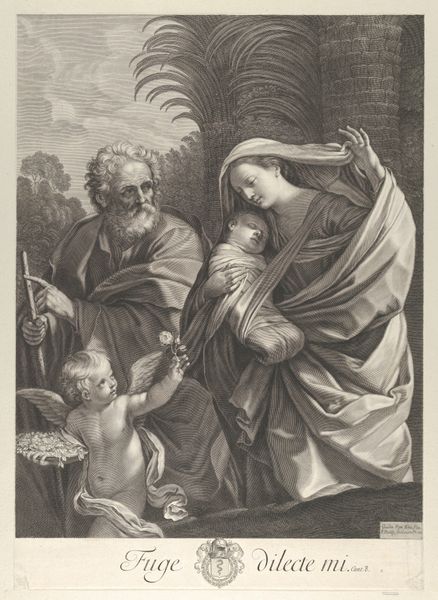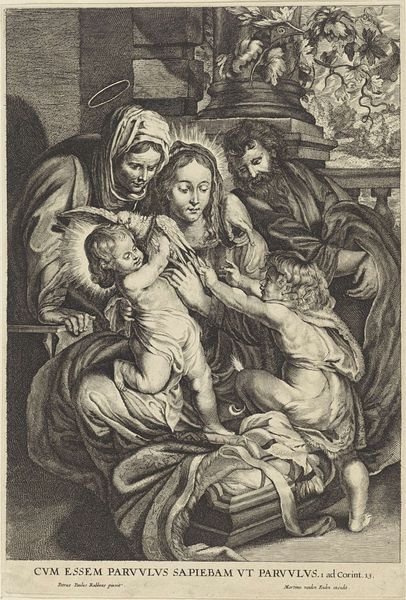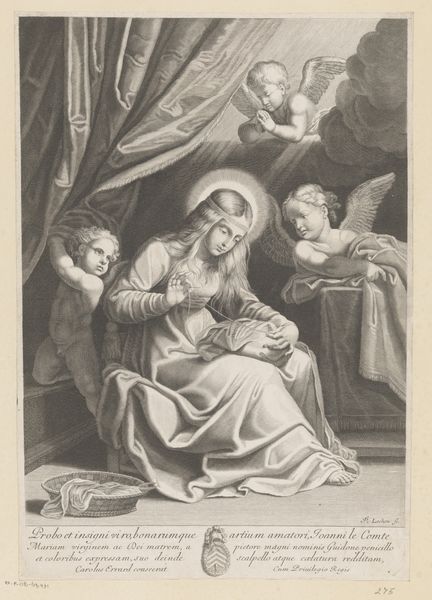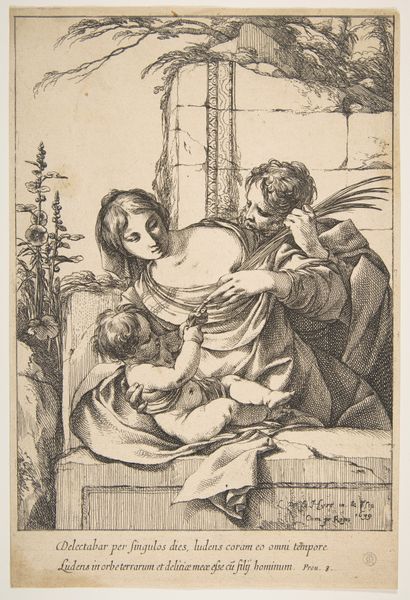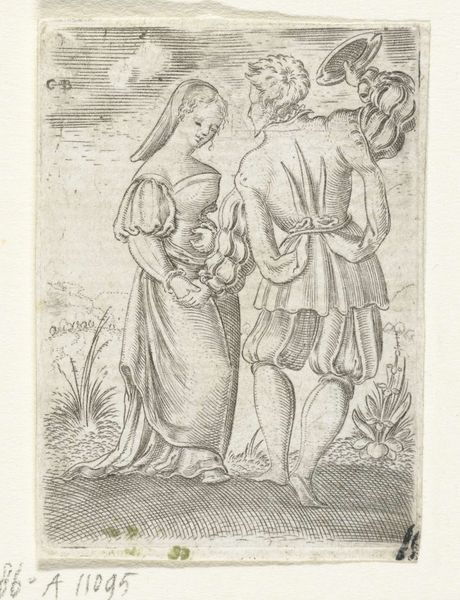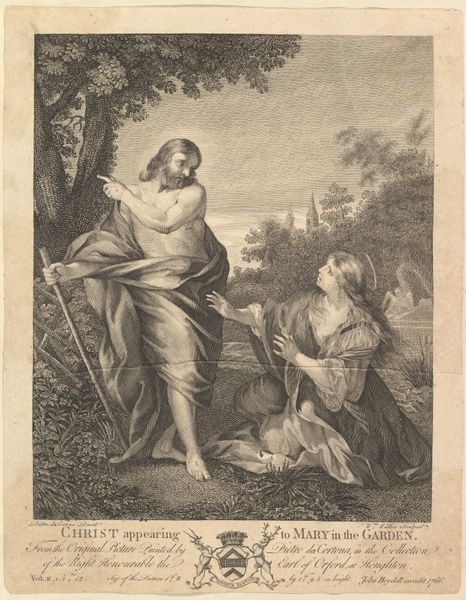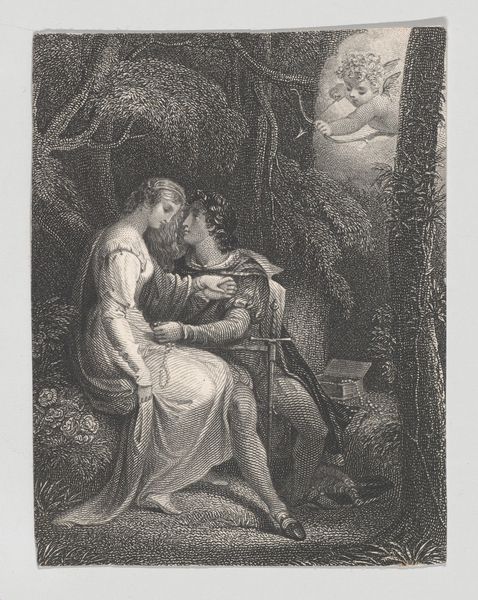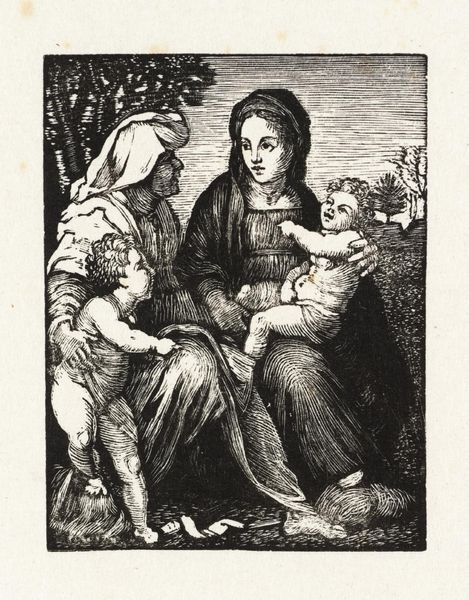
print, engraving
#
baroque
# print
#
landscape
#
figuration
#
history-painting
#
engraving
Dimensions: height 300 mm, width 253 mm
Copyright: Rijks Museum: Open Domain
Editor: We are looking at Hendrick Danckerts' "Rest on the Flight into Egypt," made sometime between 1635 and 1679. It's an engraving, a print, and it strikes me as a serene, pastoral scene, almost idealized. The figures seem quite monumental in this landscape. What aspects of its formal structure stand out to you? Curator: Notice how Danckerts employs line and shadow to create a compelling composition, leading the eye to different focal points. The artist meticulously builds volume through cross-hatching. Do you observe how the density of lines inform our reading of light, shaping the forms and delineating the subjects in the foreground against the receding landscape? Editor: Yes, definitely. The contrast is most striking on Mary’s draped clothing. How does this distribution of light contribute to the overall narrative? Curator: The controlled handling of chiaroscuro underscores the sanctity of the figures. Reflect on the positioning of each element. Why do you think Danckerts chooses to arrange the scene this way? Editor: Perhaps to emphasize the tranquility of the scene? The figures create a closed, stable pyramidal shape, with the landscape gently receding in the background. It brings to mind Renaissance compositional strategies. Curator: Precisely. By examining how lines, shading and composition construct meaning within the artwork, can you say that this speaks to a particular formal approach in representing religious themes? Editor: I now see that by focusing on the use of formal tools, the image is successful in depicting a serene mood through compositional organization and play of dark and light. Thank you. Curator: My pleasure. Considering the elements of line and composition underscores how a seemingly conventional image engages us.
Comments
No comments
Be the first to comment and join the conversation on the ultimate creative platform.
